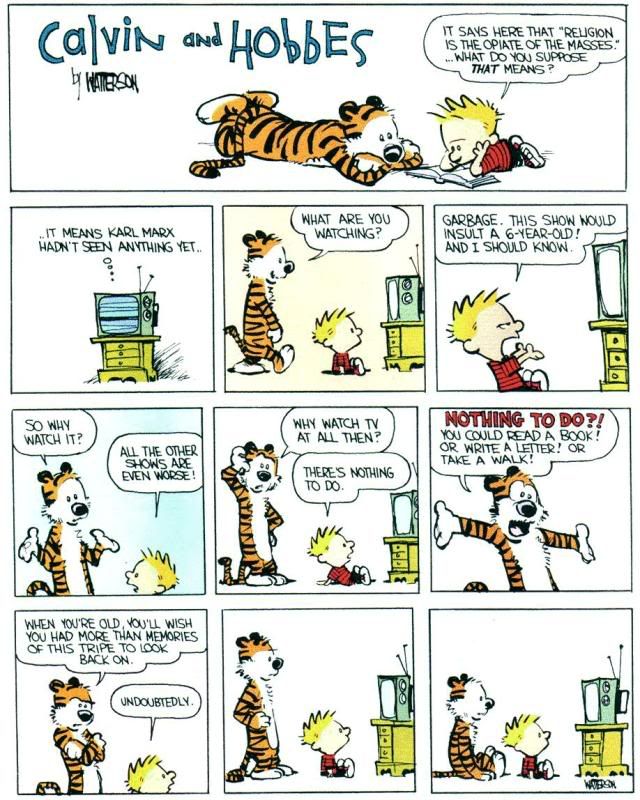
Marx, updated for contemporary life, presented to children, endorsed by newspapers and parents. Calvin and Hobbes was amazing. Of course, when a lot of kids asked their parents what "opiate of the masses" meant, they probably lied like Calvin's dad would have. But still.
(Also, in the rest of the strip, I'm almost exactly Hobbes.)
4 comments:
I must have a hard time interpreting these things, because I didn't get the one about about the library, either.
What do the first two frames mean to you?
Also, when was this piece published?
Honestly, what goes on in the two frames doesn't exactly mean much of anything to me specifically. It's more just remembering that I was first introduced to both Marx and cultural critique on the comics page, and thinking about what a bizarre thing that is.
I'm not sure exactly when this particular strip was published, but it was sometime between 1985, when the strip started, and 1991, when Watterson forced the papers to allow him to break out of the standard Sunday comic format you see here.
My only reason for posting the library Hi and Lois strip was pointing out its apparent claim that non-capitalist institutions like libraries are destructive.
I wasn't sure if they were discovering the library for the first time thanks to a recession. You see how I struggle with these things.
It would be pretty fucked up if you are right!
I guess that's a charitable way of interpreting it, but I think Lois's "Everything has a cost," combined with Ditto and Dot's change in facial expression from the first to second panel (yes, the twins in Hi & Lois are named "Ditto" and "Dot," and yes, I know every character in Hi & Lois's name), as well as my general knowledge of the everpresent simple-mindedness of the strip (though it is one of the few comic strips that actually acknowledges that people's lives have an economic aspect), puts the lie to it.
I, uh, read a lot of websites that make fun of the comics. Calvin & Hobbes, though, is a pure classic.
Post a Comment